![]()
Rubin Reports | By Barry Rubin
Despite what is now the longest-running revolution in Middle Eastern history, the Syrian regime will probably be in power on December 31, 2012. I don’t say that because it’s what I want to happen — Syria’s revolution is more democratic-minded than those in Libya or Egypt; the government is far more repressive than the former dictatorships in Tunisia or Egypt — but because it seems inevitable.
Why is it that after so many months of massive demonstrations and really bloody repression, that President Bashar al-Assad seems likely to survive? Of course no one knows what will happen but there are three reasons to think that Assad’s regime is surviving, though the cost of that is a great deal of suffering and the wrecking of the country.
First, the rulers know that it is a case of kill or be killed. Given the hated and sectarian nature of the regime — overwhelmingly dominated by Alawites who comprise only about 12 percent of the population — the elite can expect no mercy if it falls. At least, the Alawite elite and its closest allies among the Sunni Arab Muslims will lose their wealth and power; at most, they and even their families will lose their lives.
A negotiated solution of any sort is not a real possibility and the elite’s members — including army generals — are aware that they must all hang together or they will all hang separately. When they look at Egypt, where they see the former president on trial and the armed forces under serious challenge, they are not encouraged to believe they should compromise with the opposition. And when they remember Libya and Iraq, where the former leaders were executed, that conclusion is reinforced.
Second, the revolutionaries don’t have a strategy for seizing state power. They daily hold courageous demonstrations and suffer severe losses through killings and repression, yet the protests cannot force a determined dictatorship out of power. As in Iran — but not as in Egypt and Tunisia, where the armies were unwilling to mow down their own people — the regime’s ruthlessness makes it quite willing to pursue a strategy of brutality.
The Free Syrian Army is the opposition’s other potential route to power. But it remains too small, too inexperienced (many or most of its recruits are not former soldiers), and too lacking in international support to overthrow the dictatorship by force.
Third, the Syrian dictatorship is receiving ample international support, mainly from Iran but also from Russia. While the Arab League has supposedly come out against the regime, its intervention is so toothless and time-wasting that it serves the regime because as long as the League doesn’t call for tougher measures neither will Western countries.
The lack of Western intervention is another international problem for the opposition and advantage for the regime. At present, the opposition has two main requests, drawn from experience in Iraq and Libya. It asks that the West impose a no-fly zone on the Syrian military and that it helps establish an exclusion area along the Turkey-Syria frontier where refugees and dissidents can flee, an opposition government can create a liberated zone, and the Free Syrian Army can mobilize.
There does not appear to be the slightest chance of this happening. Why? I almost wish that I could say it was due to Western fear of an Islamist takeover of Syria. In fact, however, the U.S. government has actually helped the Islamists there. The real reason is fear of making another Middle East commitment, along with a strange radical ideology in the West which makes it more eager to help anti-Western forces than friendly ones.
Obviously, no one could seriously propose sending Western forces to Syria. Yet enforcing a no-flight zone would be a relatively easy, low-cost effort that might help break the regime that has been the main Arab sponsor of terrorism (always exceeding Iraq in that respect) during the last forty years and also the Arab government that has done the most to sabotage any Arab-Israeli negotiated settlement. Again, though, there isn’t any chance of this happening, certainly not under an Obama Administration. Indeed, Russia is selling Syria advanced warplanes so the regime can attack the opposition more effectively! So much for a no-fly zone.
What might break President Bashar al-Assad’s regime? Other than his being assassinated, the only likely development would be if some Syrian generals decided that the rest of the elite can only survive by eliminating him and his family. Even then, though, they would probably try to continue the regime under a different name, offering the opposition a face-saving compromise of making some concessions in exchange for an end to the revolt. This is an offer the opposition, unless it is really desperate by that point, might well reject as insufficient.
Nevertheless, the prospects are quite likely that Assad will be in power when the year ends. If the deadlock goes on without apparent end the revolution might die down, as it did in Iran. Syria will then be another case to show that revolutions usually succeed only when the elite is divided and loses its nerve, rather than being an inevitable response to oppression.
It will also show that in the Middle East only pro-Western regimes (including the temporarily “cooperative” Libyan dictatorship) get overthrown. In contrast, anti-Western governments prosper, often with Western protection or help. Go figure.



 RSS
RSS

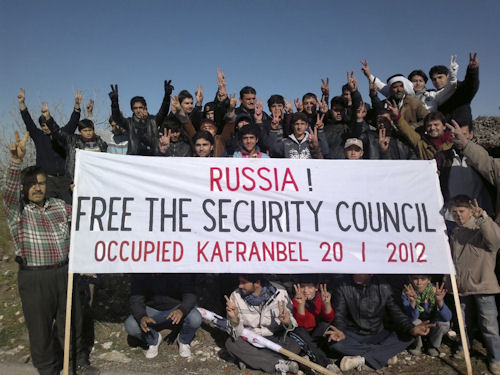
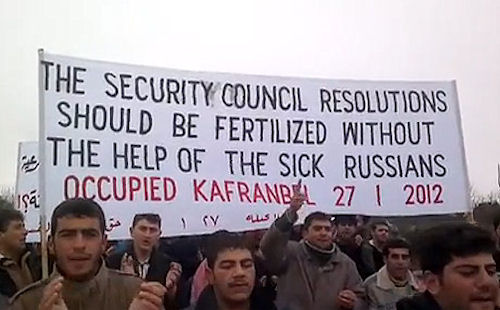

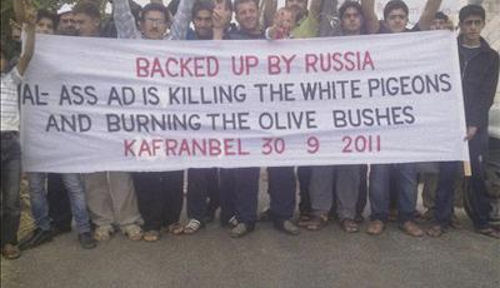
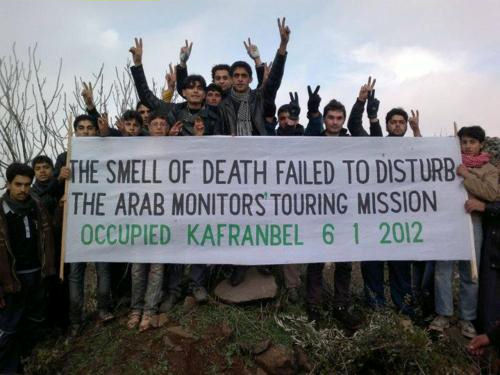
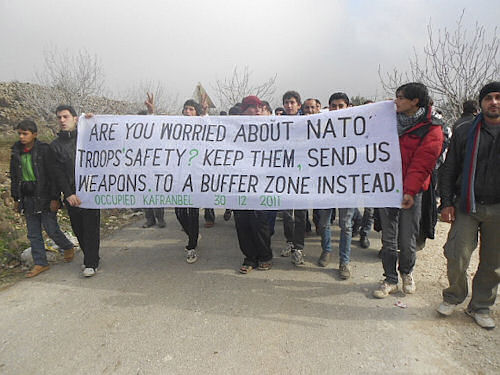
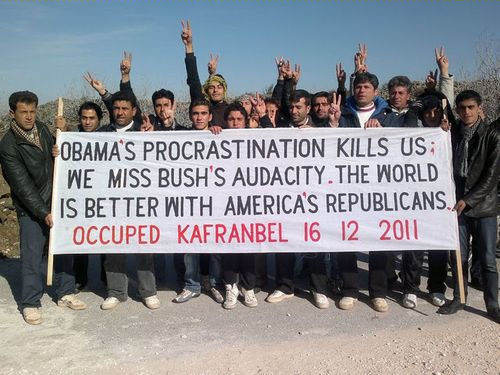




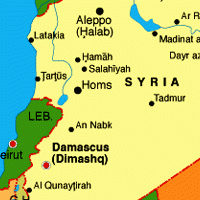













Why Syria’s Regime is Surviving a Revolution | Middle East, Israel, Arab World, Southwest Asia, Magh http://t.co/xNgWeMwA
Why Syria’s Regime is Surviving a Revolution | Middle East, Israel, Arab World, Southwest Asia, Magh http://t.co/xNgWeMwA
Thank so much for the article. You may know how much I thank you if you know that I am the writer of the above banners.
Thank you so much for the article. You may know how much I thank you if you know that I am the writer of the above banners.